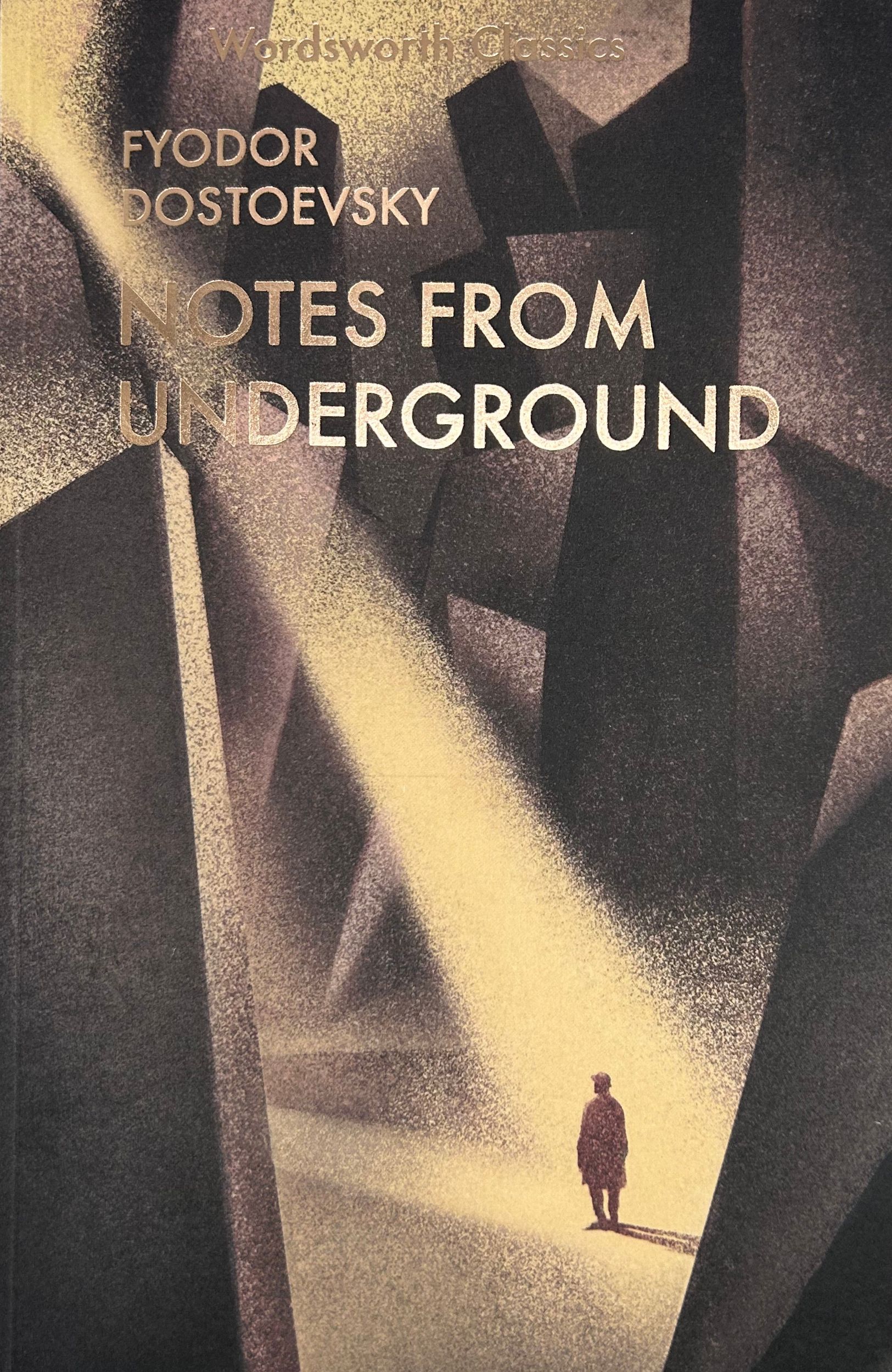Notes from
Underground


author: Fyodor Dostoevsky
rating:

publication date: 1864
format: hardback
language: Russian
reread: no
initial thoughts
click to open
I'm feeling mildly proud that this month's pick ended up being a Russian classic! Also rather excited to read Dostoevsky outside of our school curriculum. I borrowed the book from my mom and it's already making me feel like I've gone back in time, reading old copies of classics from our home library and annotating them for school ♥ Can't wait to dig in.final thoughts
Notes from Underground is a novella in which Dostoevsky mainly disses the philosophical movements that were popular in Russia and Europe during that time. The novella consists of two parts: the first one is all ramblings of the narrator (who has something deeply wrong with him), and the second part is a flashback to two particular episodes of his life. The two parts are juxtaposed: while the first part does not have anything going on plot-wise, the second part is all action. It was intentional and, in my opinion, very much resembles the narrator himself and the way he sometimes contradicts his own points as he rambles on.
I struggled a bit getting through the first part of the novella for a couple of reasons. One: I had trouble understanding what was being said because I almost completely forgot what the hell was going on in Russia’s intellectual circles at the time. Once I refreshed my memory, it became easier to read. Two: the prose was really dense and the long sentences were a bit of a nightmare. I’ve seen some translated quotes from this book (unsure which translation it was, though) and they felt much easier to digest in English than in my native Russian.
The second part illustrates the narrator’s philosophy outlined in the first part. This work’s influence on existentialism is evident, with the idea that suffering and the desire for suffering are innate to a person and will always prevail over rationality. In the second part, the narrator keeps finding excuses to continue his destructive patterns, driving both himself and the reader (me) crazy with it.
I appreciate this work for what it is, but I didn’t find it particularly enjoyable.
quotes
Клянусь вам, господа, что слишком сознавать – это болезнь, настоящая, полная болезнь. Для человеческого обихода слишком было бы достаточно обыкновенного человеческого сознания, то есть в половину, в четверть меньше той порции, которая достается на долю развитого человека нашего несчастного девятнадцатого столетия (…)
От цивилизации человек стал если не более кровожаден, то уже наверно хуже, гаже кровожаден, чем прежде. Прежде он видел в кровопролитии справедливость и с покойною совестью истреблял кого следовало; теперь же мы хоть и считаем кровопролитие гадостью, а все-таки этой гадостью занимаемся, да еще больше, чем прежде.

